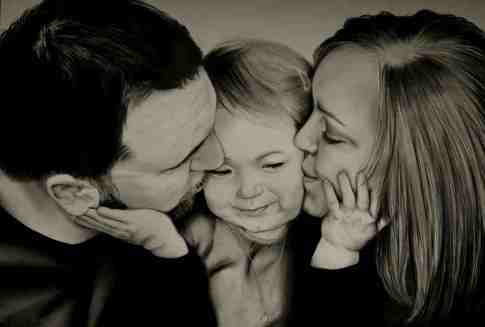Strange Talk
by Malory Columbretis
 There is a reason why I don’t actually feel like a normal person. As early as they can, parents normally tell their kids not to talk to strangers. Mine didn’t. Well, not until I was twelve and there were recurring incidents of kidnapping in our city. I would not think of it as a lapse in their otherwise neat parenting, though, I guess they just wish to avoid contradiction. My parents, you see, are people who are easy to strike conversations with others. I was also extremely introverted as a child compared to how I am now, and my parents were always urging me to make friends and mingle with people. So when I finally heard the words “don’t talk to strangers” spoken to me by my parents for the first time, I immediately asked “isn’t talking to strangers something we can’t help?” and proceeded to reason with them.
There is a reason why I don’t actually feel like a normal person. As early as they can, parents normally tell their kids not to talk to strangers. Mine didn’t. Well, not until I was twelve and there were recurring incidents of kidnapping in our city. I would not think of it as a lapse in their otherwise neat parenting, though, I guess they just wish to avoid contradiction. My parents, you see, are people who are easy to strike conversations with others. I was also extremely introverted as a child compared to how I am now, and my parents were always urging me to make friends and mingle with people. So when I finally heard the words “don’t talk to strangers” spoken to me by my parents for the first time, I immediately asked “isn’t talking to strangers something we can’t help?” and proceeded to reason with them.
Human nature is my main reason. We were all born with an inherently insatiable curiosity, hence the recklessness of children. Humans ask myriads of questions which are basically ‘who’, ‘what’, ‘when’, ‘where’ and ‘how’ questions in an attempt to satisfy curiosity and minimize uncertainties. Here, a theory of human communication comes into play–the Uncertainty Reduction theory. This theory assumes that a person experiences uncertainty in dealing with others. In turn, the uncertainty that the person experiences provides cognitive stress, thus the person feels the need to reduce this uncertainty through communication. I believe this roots from the fact that humans are social beings and communicating with other people is essential for us.
Perhaps a more proper approach to this exists aside from telling children not to talk to strangers. We can start by teaching kids how to identify and deal with suspicious people. I also acknowledge my parents’ method of teaching me social skills like greeting people and politesse as I was growing up. In line with this, the children must also have a sense of trust and security in their guardians and elders so they won’t be too afraid of socialization. Most of all, I think that the best thing my parents taught me is that confidence is key. They trusted me and had confidence in me at a young age, hence I also developed trust and confidence in myself. I learned to be introspective because of that, and introspection allowed me to know myself profoundly. Having a deep self-awareness is the main factor to effective self-expression and security. You must know yourself before you get to know others.
With that, we may say that good parenting and proper upbringing is the answer to this dilemma in order to protect the kids. The love they feel from their parents is crucial in the early stages of children’s lives. I emphasize on love that children feel and not the love that parents think they give. Let’s face it, we lose a great deal of our purity as children when we become adults. What we think we provide the children is not what they feel they are given. Genetics alone does not shape the behavior and character of children, affection has a great impact on a child’s character and, of course, the feeling of being treasured.


